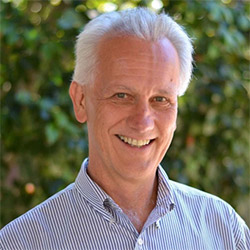
Nick Mills completed a BSc in Biological Sciences in 1975 and a PhD on the population ecology of a coccinellid predator of aphid in 1979, both from the University of East Anglia in the UK. After a four-year period as a Cook Junior Research Fellow at Lincoln College, Oxford University he joined CABI in 1982. Following an initial appointment as Head of Forest Entomology at the Swiss Centre, he became Director of the UK Centre in 1988. Soon after he accepted a professorship in entomology/ biological control at the University of California, Berkeley in 1990. He has served both as Chair of the Department of Environmental Science, Policy and Management and as Executive Associate Dean for Research and Extension in the Rausser College of Natural Resources at UC Berkeley, and is currently an Emeritus Professor of Entomology. His research interests bridge the gap between theory and practice in biological control with a focus on the ecology of arthropod predators and parasitoids, the dynamics of biological control systems, and the linkage between importation biological control and invasion biology. He has served in an editorial capacity for six different scientific journals and contributed to both national and international science review panels. During his career at UC Berkeley he received awards for undergraduate teaching and graduate mentorship, as well as for research excellence.
Urs Schaffner2, George Heimpel3, Nicholas Mills1, Beatrice Muriithi4, Matthew Thomas5, Yubak GC6, Kris Wyckhuys7
1University of California, Berkeley, US, nmills@berkeley.edu; 2CABI, Delemont, CH; 3University of Minnesota, St. Paul, US; 4ICIPE, Nairobi, KE; 5University of Florida, Gainesville, US; 6FAO, Bangkok, TH; 7Chrysalis Consulting, Danang, VN
Biological control is a biodiversity-driven ecosystem service that has been effectively exploited by mankind since 300 CE. By promoting the natural regulation of pests, weeds, and diseases, it produces societal benefits at the food-environment-health nexus. The concept of ‘One Health’ provides a uniquely useful paradigm for gauging the broader implications of environmental change while accounting for the interconnections between people, animals, plants, and their shared environment. Disciplinary silos and reductionist approaches hamper our understanding and eventual mitigation of complex issues while the One Health framework underlines how close cooperation between professionals in the human, animal, plant, and environmental health sciences can spawn unprecedented societal benefits. Evidence shows that biological control generates desirable outcomes across all One Health dimensions, mitigating global change issues such as chemical pollution, biocide resistance, biodiversity loss, and habitat destruction. Yet, its cross-disciplinary achievements remain unrecognized. Here we argue that a broader use of biological control can help address multiple One Health challenges with examples of how biological control contributes to each of the four interrelated One Health dimensions, i.e., environmental, plant, animal and human health. We emphasize that in addition to its direct benefits, such as reduced densities of crop pests or vectors of human diseases, there are underappreciated indirect benefits, including reduced environmental pollution, enhanced habitat conservation, and increased human and livestock health. We advocate a system-level, integrated approach to biological control research, policy, and practice. Framing biological control in a One Health context helps to unite medical and veterinary personnel, ecologists, conservationists and agricultural professionals in a joint quest for solutions to some of the most pressing issues in planetary health.
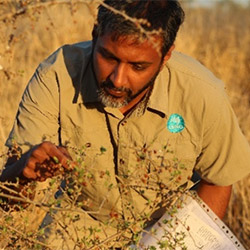
Raghu Sathyamurthy1
1CSIRO, Brisbane, AU, S.Raghu@csiro.au
The intersecting impacts of climate change, increased trade and travel, changing land use patterns, and significant international efforts to reduce the use of chemicals in agricultural and environmental interventions, necessitate sophisticated approaches to mitigating biosecurity risks. Biological control has been a valuable asset in the management of such risks (invasive pests (vertebrate and invertebrate), weeds and diseases) for over a century. While this historical legacy is assured (even if sometimes questioned), sustaining the discipline over the next century will require ongoing efforts to modernise all aspects of the discipline. In this talk, I will highlight some emerging trends and approaches spanning the spectrum of activities in biological control (i.e. target selection, agent selection, risk assessment, post release evaluation, integrated management, regulatory engagement, international conventions governing access and benefit sharing). Some of this will challenge the modus operandi in the discipline, but meeting this challenge will be essential to strengthen and advance the future of the discipline and share its benefits globally.
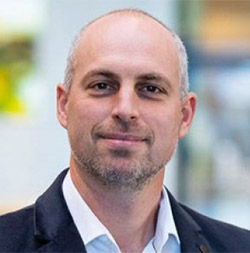
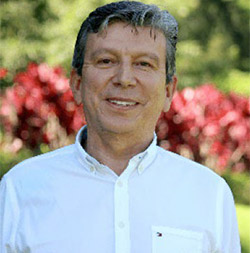
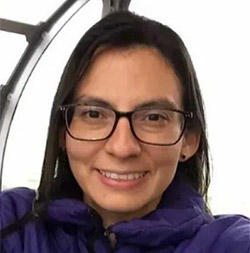
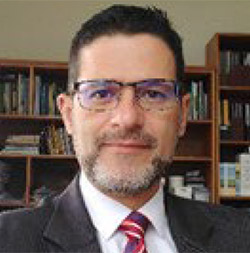
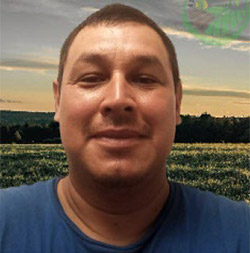

Tara Gariepy completed a BSc at Concordia University, specializing in parasitology and entomology. This was followed by a Masters degree in Pest Management at Simon Fraser University, focusing on epidemiology and molecular diagnostics of plant pathogens. In 2002, she did an internship at CABI-Europe Switzerland on biocontrol of invasive insect pests, which led to her PhD research (2003 – 2007) on the use of molecular tools for non-target risk assessment in biological control (a collaboration between CABI, Agriculture and Agri-Food Canada, and University of Saskatchewan). From 2007 to 2009, she held a NSERC post-doctoral fellowship at University of Hawaii at Manoa, Kauai Agricultural Research Centre, where she conducted research on the use of molecular tools to assess competitive interactions between biocontrol agents of invasive aphids. This was followed by an Ontario Ministry of Research and Innovation post-doctoral award at the University of Guelph and Canadian Centre for DNA Barcoding, on DNA barcoding of parasites and insect vectors of disease. In 2011, she joined Agriculture and Agri-Food Canada as a Research Scientist at the London Research and Development Centre in Ontario. Her research focuses on importation biological control of invasive insects, and development of molecular tools to detect and evaluate trophic interactions between insect pests and their natural enemies.
Tara Gariepy1
1Agriculture and Agri-Food Canada, London, CA, tara.gariepy@agr.gc.ca
Trophic interactions between hosts and their parasitoids can be difficult to detect and identify using conventional methods, particularly when several closely-related and morphologically similar parasitoids co-exist in the same habitat or on the same host species. Molecular tools can help identify these interactions, which improves our understanding of food web ecology and provides valuable information to guide biological control decisions. Several examples will be presented on how these tools are applied at different stages in the discovery and use of parasitoids in biological control programmes for invasive insect pests.Plenary Session 1 - Keynote Speaker: Raghu Sathyamurthy
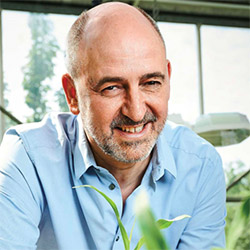
Ted Turlings did his studies at Leiden University, where he obtained a bachelors and masters degree in Biology, with a specialization in Ecology. In 1985 he moved to the University of Florida to conduct a PhD in Entomology/Chemical Ecology. During his PhD he discovered that insect-damaged plants emit specific volatile signals that attract parasitic wasps. The discovery of herbivore-induced volatiles has led to numerous follow-up studies by dozens of research groups, which resulted in thousands of publications on the topic. After a brief post-doctoral period in Florida he moved to Switzerland in 1993. He first spent three years at the ETH-Zurich and in 1996 he obtained a prestigious START-fellowship, which he took the University of Neuchâtel to start his own research group. Eventually he was nominated full professor at the same university where he helped to establish the National Centre of Competence in Research Plant Survival, a swiss-wide research network that he directed for four years. Currently, he is head of the laboratory of Fundamental and Applied Research in Chemical Ecology (FARCE), which focuses on the use of plant-produced signals to improve crop protection. He has received several awards related to the field of chemical ecology and entomology. In 2023 he was elected president of the International Society of Chemical Ecology and was given the Marcel Benoist Prize, Switzerland’s most prestigious science award.
Ted Turlings1
1University of Neuchâtel, Neuchâtel, CH, ted.turlings@unine.ch
Natural enemies of herbivorous pests often use plant-provided signals to locate plants that carry potential prey. Particularly intriguing are so-called herbivore-induced plant volatiles (HIPVs), which various plants release in large quantities only when they are attacked by insects (Turlings and Erb, 2018). Aboveground, HIPVs serve as foraging cues for predators and parasitoids, whereas belowground they are exploited by entomopathogenic nematodes. I will present results on our efforts to utilize these plant-produced signals to enhance the efficacy of biological agents. Belowground we have succeeded at making rootworm-damaged maize roots more attractive to entomopathogenic nematodes. Another focus is the use of odor sensors that can be placed on robotic rovers to detect HIPVs in real-time, allowing farmers to determine the presence of specific pests on crops before they do serious harm. The same rovers could then apply biocontrol agents to control these pests, but only when and where it is really necessary.
Turlings, T.C.J. and M. Erb (2018). Tritrophic interactions mediated by herbivore-induced plant volatiles: mechanisms, ecological relevance, and application potential. Annual Review of Entomology 63: 433-452

Tania Zaviezo did her undergraduate studies at Universidad Catolica de Chile, where she obtained a bachelor’s degree in Agricultural Sciences. In 1992 she moved to the University of California at Berkeley (USA) to conduct a PhD in Entomology/Biological Control. During her PhD she studied the evolution of clutch size in gregarious parasitoids and also looked at the interspecific relationships among parasitoids with different life-history traits. From then on, most of her research has explored the question of how biodiversity at different levels, from population genetics to landscapes, influences the outcome of biological control. Upon finishing her Ph.D she returned to Chile, to be an assistant professor at School of Agriculture and Natural Systems, Universidad Catolica de Chile, and in 2011 was nominated full professor at the same university. Here, she leads the laboratory of Fruit Crops Pest Management, which focuses on alternatives to pesticides, such as importation and conservation biological control and the use of pheromones. During her career she has secured funding from competitive national and international agencies, and has collaborated with researchers in many parts of the world. She has also served in many academic positions, such as head of department and vice-dean of undergraduate education, among others. Currently she serves as the secretary for the International Branch of the Entomological Society of America.
Tania Zaviezo1
1Departamento de Fruticultura y Enología, Facultad de Agronomía y Sistemas Naturales, Pontificia Universidad Católica de Chile, Santiago, Chile
Conservation biological control is an approach that encompasses a diverse set of practices that aim to preserve natural enemies and enhance their activity in order to improve their impact on the pest. It is probably the oldest form of biological control, but relatively new as an area of research. Conservation biological control practices aim to provide complementary or alternative trophic and non-trophic resources, that can be achieved through non-crop habitat/vegetation manipulation; within crop management practices; or direct provision of the resources. Additionally, careful pesticides use in conventional agriculture can be important for conserving natural enemies. Habitat or vegetation manipulation is probably the most studied and used tactic within conservation biological control, ranging in temporal and in spatial scale. Nevertheless, many gaps in knowledge must be addressed before habitat manipulation becomes an effective and more consistent practice, because mechanisms explaining the patterns and effects observed are rarely evaluated. In this talk we will present studies that provide evidence of the mechanisms by which conservation biological control practices increases natural enemies and/or biological control in crops. We will also highlight in which areas of conservation biological control there are the more studies on mechanisms and in which there are more gaps. Finally, we will give some suggestions on how to improve studies in order to move forward in making this strategy more transferable among cropping systems and locations.
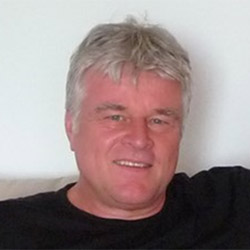
Ralf-Udo Ehlers finished his studies in Agriculture in 1985, received his PhD in 1989 and habilitation in 2003. His research focused on the development of liquid culture technology of entomopathogenic nematodes (EPN) at the Institute for Phytopathology of the University Kiel (Uni Kiel), Germany. In 1996, he founded the biotechnology company e-nema, which today is the largest producer of nematodes for biological control of insect pests. From 1988 until 2011, he was first subgroup convenor and then convenor of the IOBC/WPRS Working Group „ Insect pathogens and entomoparasitic nematodes“. From 1992 until 2010, he was participating and serving as vice chairman and chairman of several EU COST Actions on EPN and Bacillus thuringiensis. Apart from his R&D in EPN he also worked on the use of microbial agents in biocontrol of insects and plant diseases. In 2006/2007, he coordinated the EU Specific Support to Policy Action REBECA: Regulation of biological control agents in Europe. Since 2004 he is guest professor at the University Gent, Belgium and became professor at Uni Kiel in 2009. In 2012, he left Uni Kiel to concentrate on the management of e-nema GmbH. From 2013 until 2018 he served as executive board member and treasurer of the International Biocontrol Manufac¬turers Associa¬tion (IBMA) in Brussels lobbying for biological control. From 2014 until 2022, he was president of the European Society of Nematologists. He received the Escherich Award of the German Society for General and Applied Entomology in 2015 and the IBMA Bernard Blum Award for the best biocontrol product of the year 2020 (dianem® for control of the invasive corn pest Western Corn Rootworm). He is honorary member of IBMA. In 2023, he withdrew as shareholder from e-nema and is since working as consultant in biocontrol biotechnology.
Ralf-Udo Ehlers1
1Biocontrol Biotech Consult, Rastorf, DE, ruehlers@gmail.com
The world is losing its diversity. In the last 25 years insect biomass has seriously declined. Main driver for insect decline is intensive agriculture (46.6%) followed by invasive species (16.4%), urbanization (10.7%) and deforestation (8.8%). Current agriculture practice heavily depends on synthetic pesticides but at the same time the tool-box of farmers is depleting, particularly with insecticides. Pests develop resistance, older actives are not re-registered, many active ingredients are banned, development of new actives is only possible at high costs and return of investment is declining why innovation is limited and new actives often have a narrow target spectrum. In the near future, agriculture will have to rely on biocontrol biodiversity. This transformation is hampered by a serious lack of knowledge. We know the antagonists but techniques how to promote their potential at farm level is less developed. R&D is needed to develop agro-ecosystem management strategies to enhance the potential of existing antagonists and to introduce and establish those agents, which are missing in the different habitats. Biocontrol industry can support the transition, however, the political environment prohibits the full exploitation of its potentials. Major hurdles are exaggerating data requirements for registration and xenophobic legislation when introduction of non-indigenous species/strains provide more benefits than risks. Externalisation of costs related to the use of synthetic actives would justify the support of biocontrol practice, however, such programmes are rare. Biocontrol industry made significant progress during the last two decades, contributing to a reduction of pesticide residues, substituting synthetic chemicals or filling gaps. How and in which sectors biocontrol industry can support transformation of agricultural practice with less or no insecticides will be demonstrated and discussed. The contribution of novel technologies will be reviewed.
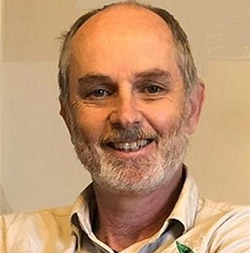
Andy Sheppard is a Chief Research Scientist in CSIRO. He joined the organisation in France in 1986 having completed his PhD at Imperial College. He is based in Canberra, Australia working in biosecurity and invasive species management. He has been a CSIRO Research Director of three different national programs on plant, animal and environmental biosecurity and terrestrial biodiversity management. His current role is a secondment into the Australian Department Agriculture Fisheries and Forestry as Co-Executive Director of DAFF-CSIRO Catalysing Australia's Biosecurity Initiative after instigating this innovation catalyst as a partnership across both agencies. This $50-$100M Mission was launched in early 2024. He is also the non-residential Director of CSIRO’s European Laboratory in Montpellier since 2002. He serves on a number of boards/advisory committees including the OECD Cooperative Research Programme Governing Board and the Scientific Advisory Body, the Federal Government National Biosecurity Committee, the Federal Government Threatened Species Scientific Committee and the CSIRO Centre of Australian National Biodiversity Research. He is also the IUCN Species Survival Commission Focal Person for the IUCN National Committee (NC) of Australia. His portfolio of research projects have included weed, pest and invasive species management based on Australia, South Africa and France. He is a Fellow of the Royal Entomological Society, Australian Academy of Technology & Engineering and an International Fellow of the Académie d'Agriculture de France. In 20023 he was awarded the “L’ordre du Mérite Agricole” by the French Government.
Andy Sheppard1
1CSIRO, Canberra, AU, andy.sheppard@csiro.au
Despite more than 100 years of successful use and the generation of effective management of many exotic pests and invasive alien species, classical biological control is still considered high risk by most governments around the world. These are often landlocked countries, where the use of biological control is not common practice and there is little or a lack of policy approaches to regulate its use. This situation is despite the acceptance and promotion of classical biological control as an effective management approach of widespread invasive alien species by the International Plant Protection Convention and the Convention on Biological Diversity. Why is this? In the recent Intergovernmental Science-Policy Platform on Biodiversity and Ecosystem Services (IPBES) Invasive Alien Species Assessment report, the authors covered biological control as a management approach globally in some detail. Countries with no history of science-based and regulated use of classical biological control generally see this approach as encompassing the early and completely unregulated use; for example, the release of cats and mongoose onto islands and cane toads around the world to control pests. This still gives the discipline a bad name despite many studies on the lack on unexpected non-target impacts of biocontrol agent releases. That such governments seem unable to distinguish between such early opportunistic unregulated use and today’s highly and regulated application of classical biological control using internationally accepted risk analysis and public consultation, tarnishes the whole modern discipline. The European Union is a good example of this regulator risk aversion despite the increasing use of classical biological control by some EU member countries. This talk analyses the relevant evidence from the IPBES assessment and proposes ways forward to address the current huge lack of global trust in what the science shows is a safe and effective invasive alien species management approach.

Hariet Hinz did her MSc in Applied Entomology at Imperial College in the UK and her PhD in Biology/Ecology at the University of Fribourg in Switzerland, focusing on plant-insect interactions in relation to classical biological weed control. In 1997, she was employed as a research scientist at CABI in Delémont, Switzerland, and became Head of the Biological Weed Control Programme in 2006. Since 2002, she is also Affiliate Professor at the University of Idaho, USA. She has thus over 30 years of experience in the risk assessment and impact quantification of weed biological control agents and related fields, such as the population biology of plants, invasion ecology and mechanisms underlying the host-finding and host-choice behaviour of insects. She published 65 papers in peer reviewed journals, was co-organizer of the XV International Symposium of Biological Control of Weeds, and co-editor of the most important resource in weed biocontrol ‘A World Catalogue of Agents and their Target Weeds’. In 2015, Hariet was appointed Centre Director of the CABI operation in Switzerland, Regional Director in 2020, and Global Director Invasives in 2021. Currently, she is developing, together with colleagues, a new CABI-led programme using an Integrated Landscape Management approach.
Hariet L. Hinz1, Tim Haye1, Marc Kenis1, Lukas Seehausen1
1CABI, Delemont, Switzerland, h.hinz@cabi.org
Classical biological control (CBC) aims to reduce the density, vigour and spread of exotic invasive organisms (mainly plants and arthropods) by introducing specific natural enemies, so-called biological control agents, from the area of origin of these pests. CBC has been practiced since 100+ years and is characterized by high safety standards. The method has zero negative effects on human and animal health, and minimal to negligible impacts on non-target organisms. Releases of biocontrol agents against invasive plants are fully or partially successful in two out of three cases, leading to benefit:cost ratios of over 3000:1, while releases against invasive arthropod pests are successful in about 40% of cases. Despite the good safety record, and potential for successful control with minimal inputs, CBC, especially against invasive plants, is not commonly practiced in Europe. Many European countries lack regulations to allow the release CBC agents, while others have banned the introduction of exotic natural enemies to control invasive pests altogether. Efforts to try and harmonize regulations for CBC across Europe have failed so far. We will explore reasons for this lack of political will, despite the high demand for alternatives to synthetic pesticides in the face of the European Green Deal and the decrease in registered products. We will also discuss potential ways forward to ameliorate the current situation.

Michelle Rafter undertook her bachelors, honours and doctoral studies at the University of Queensland, where she obtained a PhD in Evolutonary Ecology in 2013. During her PhD she uncovered the existence of host-specific cryptic species within the taxon Scirtothrips aurantii, and that explained the paradox of the host-plant specificity of an adventive “generalist” thrips species to Kalanchoe succulents in Australia. After an intense post-doctoral period in stored product pest research on an India-Australia Grand Challenge Project, Michelle moved to CSIRO in 2016. At CSIRO she has continued to use evolutionary based approaches to develop and apply ecological theory to solving biosecurity problems involving plant-insect interactions. This has led to tangible advances in invasive species management in Australia and globally, through the development of nuanced and innovative approaches to the study of weeds and pest insects. She leads CSIRO’s weed biocontrol program with insect candidate biocontrol agents, based in Brisbane, Australia. Michelle has extensive experience in delivering risk analysis under containment for biocontrol agents and weed targets in Australia. More recently, her responsibility has extended to liaising with various government agencies on behalf of CSIRO on weed management and biocontrol strategies. She is currently an Associate Editor for BioControl and Subject Editor for Environmental Entomology, former Associate Editor for Arthropod-Plant Interactions.
Michelle Rafter1, Ben Gooden2, Mariana Campos3, Kumaran Nagalingam1, Gavin Hunter2, Andrew McConnachie4, Pete Turner4, Tony Pople5, Kunjithapatham Dhileepan5, Raelene Kwong6, Jackie Steel6, Greg Lefoe5, Shauna Potter7, Matt Sheehan7, Peter Brenton8, Andreas Glanznig9
1The Commonwealth Scientific and Industry Research Organisation, Brisbane, AU, michelle.rafter@csiro.au
2The Commonwealth Scientific and Industrial Research Organisation, Canberra, AU
3The Commonwealth Scientific and Industrial Research Organisation, Perth, AU
4New South Wales Department of Primary Industries, Orange, AU
5Queensland Department of Agriculture and Fisheries, Brisbane, AU
6Agriculture Victoria, Bundoora, AU
7Wild Matters Pty Ltd, Castlemaine, AU
8Atlas of Living Australia, Canberra, AU
9The Centre for Invasive Species Solutions, Canberra, AU
Classical weed biocontrol has been used successfully to control invasive weed species for over 120 years. Weed biocontrol is a proven valuable and effective approach to weed management in Australia with 39% of all programs considered to produce complete or near complete control, 30.5% partial control with an average benefit-cost ratio of 23:1 (Cullen et al. 2022). These successes can be attributed to the exitance of a well-established regulatory pathway and national risk assessment framework that enables biocontrol to be undertaken safely in Australia. But implementation of biocontrol in Australia is at risk due to diminishing agents coming through the research pipeline and variable research investment over time (Sheppard et al. 2023). Since 2014–15, the Australian Government has invested approximately $20 million in weed biocontrol projects, but most of these programs concluded in 2023. In response to this identified risk and to further embed biocontrol into national policy, a National Weed Biocontrol Pipeline Strategy was proposed (Rafter et al. 2022). The aim of this strategy was to ensure that available research investment is allocated to sustain the research pipeline of prioritising weed candidates for research, native range exploration, risk assessment, biocontrol agent release, impact monitoring and evaluation. The strategy was endorsed by the Commonwealth and State governments in 2023 and the initial phase of the strategy commenced in 2024. The development, implementation, and key deliverables of the National Pipeline Strategy will be discussed with the aspiration that the strategy undertaken in the Australian context may prove useful elsewhere.

Martin Hill did his undergraduate and postgraduate studies at Rhodes University in South Africa, where he obtained a PhD in entomology in 1995. In 1995 he joined the Plant Protection Research Institute of the Agricultural Research Council of South Africa, where worked on the biological control of waterweeds, not only for South Africa, but initiated a number of projects throughout Africa. In 2002 Martin rejoined Rhodes University as the Professor of Entomology where he continued his work on waterweeds, but also started developing entomopathogenic fungi and viruses for the control of several crop pests, most notably in the citrus industry. In 2017 Martin established the Centre for Biological Control, which comprises a consortium of universities and research institutes in South Africa investigating the biological control of invasive alien weeds and several crops pests. Martin has served as the President of the Entomological Society of southern Africa, Secretary General of the Afro Tropical Sub Region of the International Organisation for Biological Control, and is currently the President of the International Organization for Biological Control.
Martin Hill1
1Centre for Biological Control, Grahamstown, South Africa, m.hill@ru.ac.za
The Convention on Biological Diversity (CBD) and the Nagoya Protocol (NP) establish the international legal framework for access and benefit sharing (ABS). The NP was initiated in October 2014 and has been ratified by many countries active in classical weed biological control. Whilst understanding the need for access and benefit sharing of biodiversity, the Nagoya Protocol was met with concern by the biological control community as many practitioners were skeptical of how efficiently it might be implemented in signatory states, and feared that it would significantly slow down the process of obtaining the necessary permissions to survey for, collect and export potential biological control agents (Prior Informed Consent (PIC) and Mutually Agreed Terms (MAT). The International Organization for Biological Control (IOBC) Global established a Commission on Access and Benefit Sharing in 2021 that has resulted in a selection of papers including a special issue of BioControl (2023) that essentially sets out a best practices for implementing the Nagoya Protocol in classical biological control. In kind benefit sharing through support of laboratories, student support, infrastructure sharing of agents has historically been a philosophy of the international weed biological control community. The weed biological control community has prided itself in practicing a public good science. The intentions of the NP are noble as it seeks to reward countries for protecting their biodiversity. However, the unintended consequences of the NP could be that only resource rich countries will be able to afford to practice classical biological control and it will be unaffordable to resource poor counties.